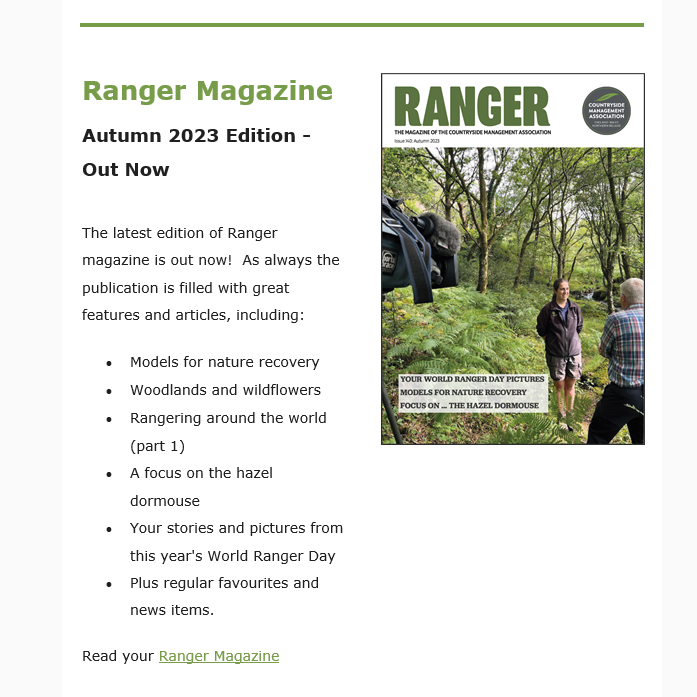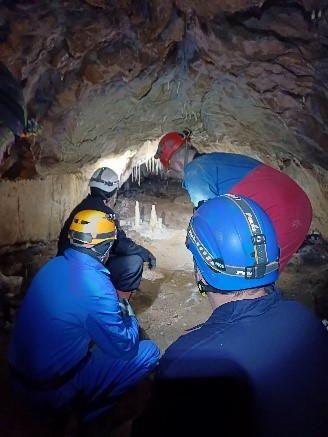We are delighted to announce that we have been selected as a winner of the 2024 Weston Charity Awards! BCA have been awarded a team of business experts and funding to tackle social and environmental challenges.
Read the press release below
Read the press release below

The Big Help Out
Click on this link to sign up for the volunteering session on 8th June

Buxton Civic Association (BCA) is delighted to announce a unique opportunity for an experienced Heritage Consultant to lead a comprehensive review of our governance, leadership, strategy, organisational structures, policies and practices. As the leading local environmental and heritage charity, BCA is transitioning from a relatively small, volunteer-led charity to a larger organisation, steered by a professional team overseeing operational management in collaboration with the Board of Trustees. We aspire to expand our membership and significantly enhance volunteer engagement, recognising the need for a thorough review and modernisation of our governance structures and working methods.
The appointed consultant will be instrumental in shaping the future of BCA, ensuring its ability to deliver on charitable objectives and sustain meaningful engagement with the community. This endeavour is paramount in securing a legacy that resonates with the next generation, fostering positive impacts on both the organisation and the town.
Join us on this journey of transformation, where your expertise will be integral to the evolution of a cherished local charity. You can be the catalyst for positive change, leaving a lasting imprint on the heritage and environmental landscape of Buxton and be a driving force behind a brighter future for BCA and the community it serves.
BCA are grateful for the support of the National Lottery Heritage Fund and National Lottery players in
funding this work.
To find out more and to apply download the Consultant Brief below
Consultant Brief - Governance/Leadership/Organisational Review
The dedicated trustees of BCA volunteer their time and knowledge selflessly and deserve recognition, especially during Trustees Week. They and their efforts are often hidden in the background, but they play an indispensable role in guiding and nurturing Buxton's leading local environmental charity, enabling it to achieve its goals in looking after the built and natural environment of Buxton. Their voluntary service is a testament to the power of community spirit.
Coming from a diverse range of backgrounds and bringing a wealth of knowledge and experience to their roles their contributions extend far beyond the boardroom; they offer strategic direction, foster innovation, and ensure that the charity's mission remains aligned with the needs of the community it serves, all while volunteering their time without any financial compensation.
Their motivation is fueled by a genuine desire to make Buxton a better place to live in and to visit, and their unwavering commitment to the causes they support is inspiring.

The latest edition of the Ranger Magazine
Read about the BCA in the latest edition of the Ranger magazine.
Words by Simon Fussell
Photos by Frag Last

Clive Beattie 1942 to 2023. BCA Chair 1996 to 2009
"Buxton Civic Association owes Clive Beattie a huge debt of gratitude for his vision, determination, and commitment. Without his leadership at a crucial time, the Association of which we can all be justifiably proud, might not even exist today."
Clive Beattie was born and raised in a modest terraced house on Buxton’s most well-hidden street – Davenham Avenue – but became one of the town’s most prominent and well-respected figures.
Locally schooled, his intelligence, ambition, and abilities were apparent early in life, and his academic performance enabled him to pursue his further education at the prestigious London School of Economics (LSE) which was, sixty years ago, considered highly controversial and ‘avant-garde’ by a disapproving traditional academic establishment.
However, it provided the perfect springboard from which Clive could launch a career in professional business management.
Not that he was noted as being overly academic. London life provided a host of social opportunities for a personable, good natured, and generous young man-about town. Back in the Peak District, he also enjoyed local stardom in rock bands with other friends, including another well-known local larger-than-life personality, Barry Blood. Clive’s affability and ever-youthful good looks had Buxton’s teenage girls’ swooning at his feet – which, he freely admitted, was not the most arduous cross to bear…
He had decided on a career in management at a propitious time, when British industry was rebuilding in the post-War era. Large organisations were discovering that, in Harold Wilson’s promised future age of “white-hot technology,” commercial success could no longer be achieved by promoting junior and middle-management ‘from the shop floor’ and relying on family and wealthy contacts to fill comfortable spaces around the boardroom table. It was necessary to have senior people who understood the machinery of commerce, who could objectively evaluate market opportunities, undertake strategic planning – and make hard choices unfettered by historic family ties or nebulous ‘loyalties’. People who knew the difference between sales and marketing; could undertake ‘SWOT’ analyses, and, unlike many of their predecessors, actually understand a balance sheet.
Such was the world waiting to welcome a young, ambitious, and well-qualified Clive Beattie.
His first major employer was British Steel, and he had many a tale to tell about the ‘laissez-faire’, hard-drinking, boardroom culture prevalent at the time amongst his co-directors at the Company’s various satellite businesses. Clive gravitated towards an interest in transport, (and always claimed that one of his close colleagues in senior management was personally responsible for the transformative re-naming of the unromantic business of ‘road haulage’ into what is now universally, and more glamorously termed, ‘logistics’).
Fortuitously, (but also in the basis of his personal acumen and performance) he came to the attention of Sir Peter Thompson, who would become the Chairman of what was then the ailing British Road Services (BRS). Clive was ‘headhunted’ by Sir Peter, and they became lifelong friends and business colleagues – a substantially golf-based relationship that endured long after retirement, when they formed, together with other ex-colleagues, a small group of private investors, who had made their fortunes on the public flotation of BRS, in it’s newly minted identity as National Freight Corporation (NFC).
Peter Thompson had determined that the only viable future for NFC was as a private company, which he led very successfully as a ‘management buy-out,’ on the basis of employee subscriptions, underpinned by support from major clearing banks. The flotation, in 1982 was a major success. Thousands of rank-and-file employees invested an average of £700 each, with senior executives, including Clive, scraping together every penny they could find to make major investments.
Their confidence was not misplaced, with the newly-privatised business generating quite astonishing annual returns and capital appreciation, enabling Clive and his associates to effectively ‘retire’ at an unusually early age.
Clive returned to Buxton as a wealthy man in his early forties, having no need of regular employment. He chose to dedicate himself thereafter to setting up, and sponsoring a range of local businesses, and, crucially, involving himself in various prominent local charities. He is, perhaps, most publicly remembered for his role in the rebirth of Buxton Opera House. As an early member of the Opera House Trust, he served as a Director under the dynamic leadership of Councillor Margaret Millican, eventually succeeding her as Chairman.
Again, at the instigation of the redoubtable Mrs. Millican, he became a local political activist, and served for a few years as a Borough Councillor, before deciding that such responsibilities were irreconcilable with his need to spend the majority of each winter indulging his passion for skiing in the Val d’Isere region, where his abilities and enthusiasm for ‘black runs’ and challenging off-piste skiing (matched only by his powers of ‘apres-ski’ endurance) are still described as ‘legendary’ by those who regularly accompanied him.
Clive joined the Board of the then Buxton & District Civic Association around 1990, at a time when its situation must have been a source of some frustration to him, given his wide experience and training in professional business management. The Civic Association had been founded, like many similar organisations throughout the UK, on the basis of giving concerned local residents a rallying point from which they could challenge unpopular public sector policies and decisions, and also promote the preservation and enhancement of Buxton’s unique environmental and architectural heritage.
It would be fair to say, with no intended criticism, that, whilst the Association’s directors during the first quarter of a century, were, indeed, worthy and well-educated ‘concerned citizens’ from many walks of life, they were almost exclusively ‘employees’ from both the public and private sectors, mostly with little or no experience of running a business.
And, seemingly without many directors being aware of the fact, BCA had, in the ‘seventies, become a business.
Transformation from the ‘traditional,’ non-trading civic association model, began when BCA agreed to take over ownership and responsibility for the substantial deciduous woodlands that surround the town, and which had been in the ownership of the dukes of Devonshire for at least a hundred and fifty years. These woodlands required substantial improvement and ongoing maintenance, which Chatsworth regarded as an unwelcome financial burden, as they could see no way of ‘monetizing’ the sites, which were, and still are, protected by conservation legislation.
The Chatsworth Trustees must have been delighted, having successfully offloaded a pure financial liability on to the shoulders of a proud Civic Association, in the guise of a generous gift to the town.
It eventually became apparent to BCA’s Directors that they now needed a substantial and steady source of income, with which to fund the management and preservation of the woodlands, and this led to the purchase of Poole’s Cavern, which had been closed for nearly a decade.
In 1976, a purpose-built visitor centre was erected, which housed cloakrooms, staff offices and an exhibition relating to the Cavern and the surrounding area. Unfortunately, subsequent boards seemed to think this was ‘job done,’ and the business of running Poole’s Cavern was given little consideration thereafter, compared with the higher public profile of crusades against perceived local authority philistinism, and unwelcome planning applications.
Meanwhile, the costs of maintaining hundreds of acres of woodlands, some of which were intensively used for recreational activity by both locals and tourists, together with running Buxton’s primary ‘visitor attraction,’ continued to rise. A full-time manager now required administrative support, and an increasing rota of part-time permanent and seasonal cave guides. As more of the manager’s time was taken up with matters relating to running and promoting Poole's Cavern, it became necessary to hire in forestry expertise for major interventions in the woodland.
The financial burden on BCA’s ‘cash cow’ became more and more onerous – but there had been no investment in The Cavern for twenty years. The accompanying exhibition was tired and dated, and there was only a desultory attempt to offer plastic cups of lukewarm tea, coffee, and Mars bars from a dilapidated hut that was only intermittently unlocked by a tour guide, shortly before and after a trip into the Cavern. In the visitor centre, a wooden signpost, and a life-size model of a lime-burner’s hovel, stood incongruously and self-consciously on an expanse of polished vinyl flooring...
Income from The Cavern had peaked, and was now reducing, and by the time of Clive Beattie’s arrival, the Association’s overall financial position was in steady and increasing decline. It was an unsustainable situation.
Clive took over the Chairmanship of the Board in 1996, following the sad and untimely death of his predecessor, Dr. Lynda Carr, and after an initial period of assessment, he persuaded his more traditionally minded and risk-averse colleagues that bold initiatives were needed if BCA was, indeed, to survive at all.
He then embarked on a campaign to recruit new directors – particularly those who had relevant business and professional expertise that would be required in the hoped-for renaissance of the association.
Persuasive and affable as he was, he was almost invariably successful in this endeavour. He introduced Bill Preece, then Managing Director of Otter Controls Ltd, one of Buxton’s biggest and most prominent employers. Bill was very well-known around the town, and highly respected. He was also, fortuitously, a member of EMDA (East Midlands Development Agency) which facilitated the Association’s applications for substantial development grants. Bill’s presence also reassured Board members, with his locally-established track record of a high level of commercial competence and reliability.
Clive also recruited John Boardman, the brother of internationally acclaimed climber, Pete Boardman. John’s career had been spent in the banking industry, and he was therefore not only a ‘safe pair of hands’ in the professional direction of BCA’s finances, and in financial forward planning, but also could produce and present the detailed and copious financial evidence demanded in support of grant applications and banking facilities.
Paul Dinsdale was added to the team, due to his professional background in architecture and planning, and was joined by Sarah Gillespie, a local accountant, and solicitor Martin Wragg – an exceptionally conscientious Company Secretary, who still serves in the post today.
Peter Phillipson, BCA’s current Chairman, was also persuaded to join the Board, and crucially brought his skills as an established professional consultant ecologist, to bear on the Association’s estates.
Having assembled his team, Clive tasked colleagues to plan a sustainable and successful future for the Association. In addition to recruiting a team of professionals he implemented a significant reform with the introduction of specialist committees to streamline decision making and improve the management of the business. In the opening years of the new millennium, it was glaringly apparent that there was no time to lose, as annual turnover steadily decreased, and nominal profitability evaporated.
It was obvious to all that there had to be a step-change in income generation – and on a large scale. The first obvious step was to completely rejuvenate the Poole’s Cavern ‘offering’ to increase visitor numbers, and to encourage them to stay longer and spend more.
Ambitious plans were drawn up for the extension of the visitor centre, to incorporate an attractive retail area, and a substantial, fully-equipped, and welcoming cafeteria. Capital for the development was raised, in part, by generous grants from EMDA, and the remainder by substantial bank borrowing – something that would have been unthinkable to previous generations of conservatively-minded Directors. The proven abilities, professionalism, and confidence of Clive, Bill, and John Boardman successfully underpinned the faith of their co-Directors, as well as BCA’s bankers!
Alongside the development of the Poole’s Cavern site, an entirely fortuitous opportunity arose to allow the Grin Low woodland to, itself, generate some of the income needed for its own future management, when the wife of a Board member happened upon an advertisement for ‘Go-Ape’ whilst on holiday. “Couldn’t you do this at Poole’s Cavern?” she asked.
Clive quickly authorised a colleague to approach Go-Ape’s owners, who expressed a keen interest, as they were in the early stages of rolling out the ‘Go-Ape’ brand nationally. All their previous adventure courses had been sited in Forestry Commission woodlands, and a large mature deciduous forest on a steep slope presented an intriguing new challenge. Also, Buxton was within easy reach of a vast tourist catchment area, and the impending improvement of on-site facilities would also attract Go-Ape clients. There were obvious benefits for both parties, and Clive was highly proactive in negotiating a long lease of part of the Grin Low woodland in exchange for a substantial annual rental addition to BCA’s income stream.
The new Poole’s Cavern ‘experience,’ with its expanded retail area, a new and interactive exhibition area (professionally curated by commissioned specialists), and a highly successful and profitable cafeteria, ably managed by Paula Pickering from its outset to the present day, proved to be immensely popular with visitors, gaining awards and recognition on a regional and national scale.
Further improvements followed, as Clive instigated a state-of-the-art programmable LED lighting installation throughout the Cavern, which ended previous problems of unwanted organic growth in the cave due to the heat output of traditional tungsten lighting, as well as slashing BCA’s electricity bills. Again, this necessitated grant applications and further bank support, all of which Clive personally and successfully oversaw.
Another of his initiatives was to encourage and facilitate access to the Cavern for non-ambulant visitors, as all of the Peak District’s other show caves are only available to those visitors able to walk and negotiate steps. Local stonemasons were engaged to level and pave the whole of the entrance passage into and including the start of the main chamber, so that families with wheelchair users could all enjoy the experience together.
Many more ambitious and exotic schemes were discussed, but never left the drawing board, including breaking through the boulder choke to extend the Cavern into suspected further chambers deeper in in the hillside, and tunnelling a new ‘return passage’ from the far end of the Cavern, which would have increased the visitor capacity of the cave at peak times.
It quickly became apparent that all the improvements that Clive had directed had, indeed, borne fruit. For ten years thereafter, until the trauma of the Covid era, the Association’s financial position went from strength to strength, with revenues and profitability increasing hugely, such that a large financial reserve could be built up, which was another of Clive’s goals. Ironically, the Charities Commission queried the legitimacy of the Association holding such large reserves – but how welcome they were during the pandemic years!
Clive resigned as Chairman of BCA in 2009, when the bulk of the redevelopment was complete. He had fulfilled what he perceived to be his role in the Association, and, ever since, our financial results bear out that perception ‘in spades’.
Buxton Civic Association owes Clive Beattie a huge debt of gratitude for his vision, determination, and commitment. Without his leadership at a crucial time, the Association of which we can all be justifiably proud, might not even exist today.
We all unite in extending our sympathy and condolences to Clive’s family at this time. He will be sorely missed.

The intrepid Seven go caving in Poole's Cavern
Richard Knisely-Marpole talks about his fascination for Dragonflies and shares his photographs of these remarkable ancient creatures.

Dr Mike Monaghan Chair of Buxton Civic Association was delighted to hand over a cheque for £1000 to the volunteers at the Serpentine Community Farm project. BCA has supported the project several times, Mike added “this is an excellent project and shows just how much can be achieved by a dedicated, hardworking community minded group of people.”
The farm, established in 2014, aims to restore derelict council owned greenhouses that are situated just off Serpentine Lane in Buxton. Volunteers are welcome, and the next volunteer days are Wednesday 22nd February, and the following Sunday, 26th February.